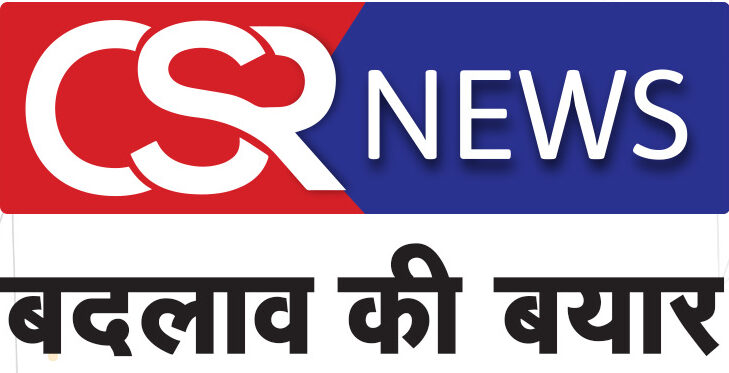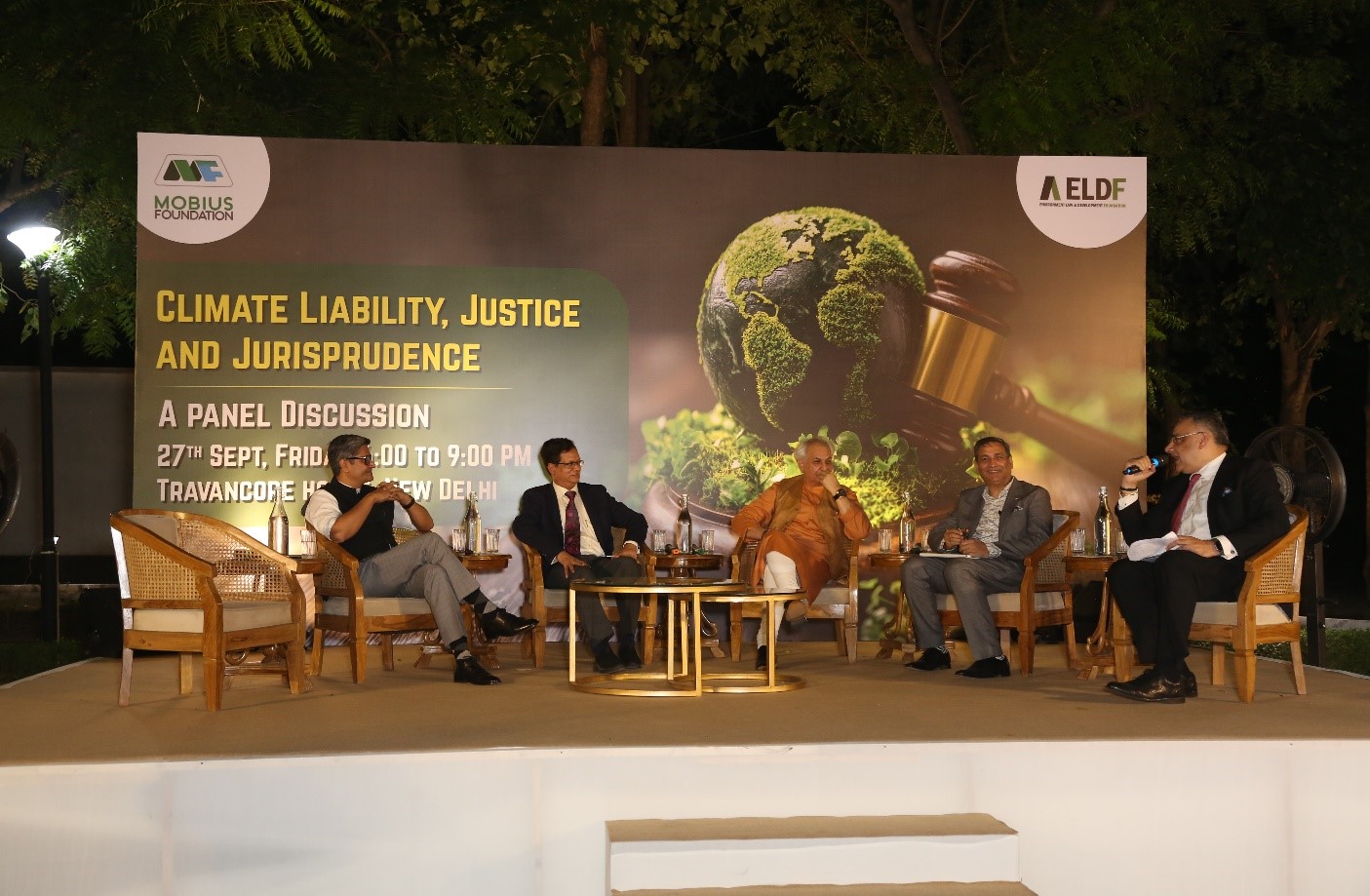New Delhi : On September 27, 2024, the Mobius Foundation, in partnership with the Environment Law & Development Foundation, hosted a pivotal panel discussion titled “Climate Liability, Justice, and Jurisprudence” at Travancore House, New Delhi. This event underscored the urgent need for accountability and strong legal frameworks in response to the growing climate crisis globally.
The distinguished panel featured notable speakers, including:
- HMJ Hima Kohli, Former Judge, Supreme Court of India (Chief Guest)
- Dr. Afroz Ahmad, Expert Member, National Green Tribunal (Guest of Honour)
- Chandra Bhushan, President & CEO, International Forum for Environment, Sustainability and Technology (Special Guest)
- Sanjay Upadhyay, Senior Advocate and Honorary Managing Trustee, ELD Foundation
- Praveen Garg, IAS (Retd.), Former Special Secretary, MoEF&CC and President, Mobius Foundation
Jatinder Jay Cheema, a lawyer specializing in Projects, Energy, and Natural Resources, skillfully moderated the panel.
Key Discussion Highlights: The panel delved into the intersections of climate change liability and legal frameworks, focusing on several key themes:
- Climate Liability: Examining accountability mechanisms for governments, NGOs, corporations, and individuals within the Indian context.
- Climate Justice: Addressing the disproportionate impacts of climate change on vulnerable and marginalized communities.
- Evolving Jurisprudence: Reviewing landmark cases and innovative judicial approaches to climate litigation in India.
Speaker Insights: HMJ Hima Kohli highlighted the urgency of addressing climate change, stating, “The increasing frequency of extreme weather events, melting glaciers, rising sea levels, and the loss of biodiversity underscore the crisis we face. It is imperative that we, as a society, recognize the multifaceted nature of this challenge. The solutions must integrate legal and political frameworks alongside scientific advancements, ensuring that every stakeholder is held accountable for their role in combating climate change.”
Dr. Afroz Ahmad noted the significant environmental hazards posed by fly ash, emphasizing the need for strict regulatory measures and innovative solutions. He said, “Globally, around 800 million tons of fly ash are generated, with India contributing approximately 180 million tons. We must focus on sustainable practices that mitigate this waste while harnessing its potential for societal benefit.”
Chandra Bhushan discussed the complex relationship between environmental conservation and community displacement, stating, “The pursuit of sustainability often leads to conflicts for marginalized communities. Our environmental policies must be inclusive, addressing the rights and needs of those most affected. True sustainability requires a holistic approach that balances ecological preservation with social justice.”
Sanjay Upadhyay called for the integration of climate liability into Indian law, advocating for a comprehensive legal framework. He stated, “We need to approach climate liability with urgency and responsibility. Our legal frameworks must reflect the realities of climate change, ensuring justice for those affected. An overarching law is essential, informed by both legal expertise and practical considerations, to prepare us for future challenges.”
Praveen Garg emphasized the need to create a future where no community disproportionately bears the burden of the climate crisis, advocating for a well-thought-out legal framework on climate change. He highlighted the importance of quality education and skill development to facilitate the transition for those on small agricultural land holdings.
In conclusion, the Mobius Foundation and the Environment Law & Development Foundation urged all stakeholders to remain engaged in discussions around climate liability and justice, highlighting the importance of youth involvement in this vital dialogue.

